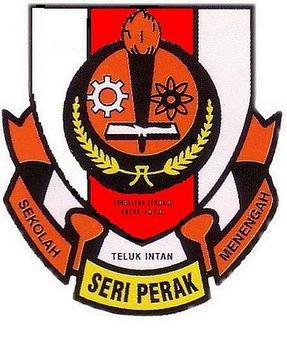
Malay is an Austronesian language that is an official language of Brunei, Indonesia, Malaysia, and Singapore, and that is also spoken in East Timor and parts of Thailand. Altogether, it is spoken by 290 million people across Maritime Southeast Asia.

Independence Day, also known as National Day, is the independence day of the Federation of Malaya from the British Empire. It commemorates the Malayan Declaration of Independence of 31 August 1957, and is defined in article 160 of the Constitution of Malaysia. The day is marked by official and unofficial ceremonies and observances across the country.
The phrase "Malaysian Malaysia" was originally used in the mid-1960s as the rallying motto of the Malaysian Solidarity Convention, a coalition of political parties led by Lee Kuan Yew of the People's Action Party (PAP) that served as an Opposition bloc to the Government of Malaysia, the Alliance Party.

Kolese Loyola, also referred by its acronym LC or Loyola College is a private Catholic secondary school located in Semarang, Central Java, Indonesia. The school was established by the Indonesian Province of the Society of Jesus in 1949. The school's name is derived from its patron saint, St. Ignatius of Loyola.

Ketuanan Melayu is a political concept that emphasises Malay preeminence in present-day Malaysia. The Malays of Malaysia have claimed a special position and special rights owing to their longer history in the area and the fact that the present Malaysian state itself evolved from a Malay polity. The oldest political institution in Malaysia is the system of Malay rulers of the nine Malay states. The British colonial authorities transformed the system and turned it first into a system of indirect rule, then in 1948, using this culturally based institution, they incorporated the Malay monarchy into the blueprints for the independent Federation of Malaya.

Dato' Sudirman bin Haji Arshad, DSAP, JMN, AMN, AMP, known mononymously as Sudirman, was a Malaysian singer and songwriter. His singing career kicked off after winning the Bintang RTM singing competition on 11 August 1976. His career defining moment came after he was awarded winner of the "1989 Asia's No. 1 Performer" title during the ‘'Asian Popular Music Awards'’ competition held at the Royal Albert Hall in London on 19 March 1989. Throughout his career, he was known as the "Singing Lawyer", the "People's Singer", the "Patriotic Singer" and the "Elvis Presley and Claude François of Malaysia" in his native country. Apart from being a renowned singer from Malaysia he was also a trained lawyer, a composer, writer, cartoonist, canned drinks entrepreneur and an actor.

The National Film Department of Malaysia, abbreviated FNM, sometimes Jabatan Filem Negara (JFN) or informally the Malaysian Film Unit; was a Malaysian state-owned film organization. It is the country's first film studio and the government department under the Malaysian Ministry of Communications and Multimedia, which was responsible for the filming and documentation of national events as well as producing factual and unscripted contents. In its heyday, FNM became the country's most prominent film agency. Its corporate emblem features a jumping Malayan tiger, which was synonymous with the agency and its headquarters were located in Petaling Jaya, Selangor.
This article lists important figures and events in Malaysian public affairs during the year 1969, together with births and deaths of notable Malaysians. Race riots following the general election of 10 May led to the dissolution of parliament and an interim legislative council being put in place.
The Bangsa Malaysia policy was introduced by Mahathir Mohamad, then Prime Minister of Malaysia, to create an inclusive national identity for all inhabitants of Malaysia, thus abandoning the National Culture Policy that asserted a Malay ethnic national identity. Mahathir Mohamad said it means "people being able to identify themselves with the country, speak Bahasa Malaysia and accept the Constitution."

Tourism in Malaysia is a major industry and contributor to the Malaysian economy. Malaysia was once ranked 9th in the world for tourist arrivals. The Travel and Tourism Competitiveness Report 2017 ranks Malaysia 25th out of 141 countries overall.
Tegakkan Bendera Kita is a Malaysian patriotic and national song. It was played by Sudirman Arshad on 1982.

Datu Mustapha bin Datu Harun, or Tun Mustapha for short, was a Malaysian politician who served as the 3rd Chief Minister of Sabah from May 1967 to November 1975 and the 1st Yang Di-Pertua Negara from September 1963 to September 1965 and President of the United Sabah National Organisation (USNO). He is considered by some to be one of the founding leaders of Sabah and was an important party in the negotiations leading to the formation of Malaysia on 16 September 1963. He is sometimes known as the "Father of Independence of Sabah" and also the "Father of Development of Sabah".

Sekolah Menengah Kebangsaan Seri Perak (SEMARAK) or formerly known as Sekolah Menengah Telok Anson, is a secondary school located in Teluk Intan in Perak, Malaysia. The school was opened in 1957 but officially named in 1965. It is one of the oldest schools that provides a Malay Stream not only in Perak but also in Malaysia. In 1998 the school was officially listed as a Sekolah Bestari.

Kedahan Malays or commonly known as Orang Utara ('Northerners'), are a sub-group of Malays native to northern Malay Peninsula in areas of both current and historical area of Kedah. They are among the oldest ethnic groups in the Malay peninsula with a history dating back 2,800 years as proven by the discovery of sites in Bujang Valley and historical documents from India, China and Arabia. Kedahan Malays are one of the largest Malay sub-groups in Malaysia, comprising at least 15% of the total Malaysian Malay population including those with Kedahan ancestry.

Wan Osman Wan Awang, also known by his pen name Usman Awang was a Malaysian poet, playwright, novelist and Malaysian National Laureate (1983).

SMK Majakir Papar also known as Sekolah Menengah Kebangsaan Majakir Papar (SMKMP) in Malay, is a Malaysian secondary school in East Malaysia established in 1962.

The Kuching Declaration is a declaration in English was adopted by the three component parties of the Pakatan Rakyat coincide with Malaysia Day celebrations on 16 September 2012 held at Chonglin Park, Kuching, Sarawak, the declaration pledge and promise will honour the spirit of the Malaysia Agreement of 1963 to the nations and the peoples of the States of Sarawak and Sabah that when they form the next government of the Malaysia they will honour all its pledges and promises in this declaration.

The Proclamation of Malaysia was a statement, written in English and Malay, that declared the merger of the Federation of Malaya with the State of Singapore and the British crown colonies of North Borneo and Sarawak into the new Federation of Malaysia, following the enactment of the Malaysia Agreement and the Malaysia Act 1963 that July. The merger came into effect on 16 September 1963, and the proclamation was delivered on that date by Prime Minister Tunku Abdul Rahman in the Stadium Merdeka in Kuala Lumpur.

Parti Bangsa Malaysia, is a registered centre-right political party in Malaysia. The party was founded as the Sarawak Workers Party before being handed over in November 2021. The party is currently represented by one Member of Parliament (MP) after the 15th general election (GE15).